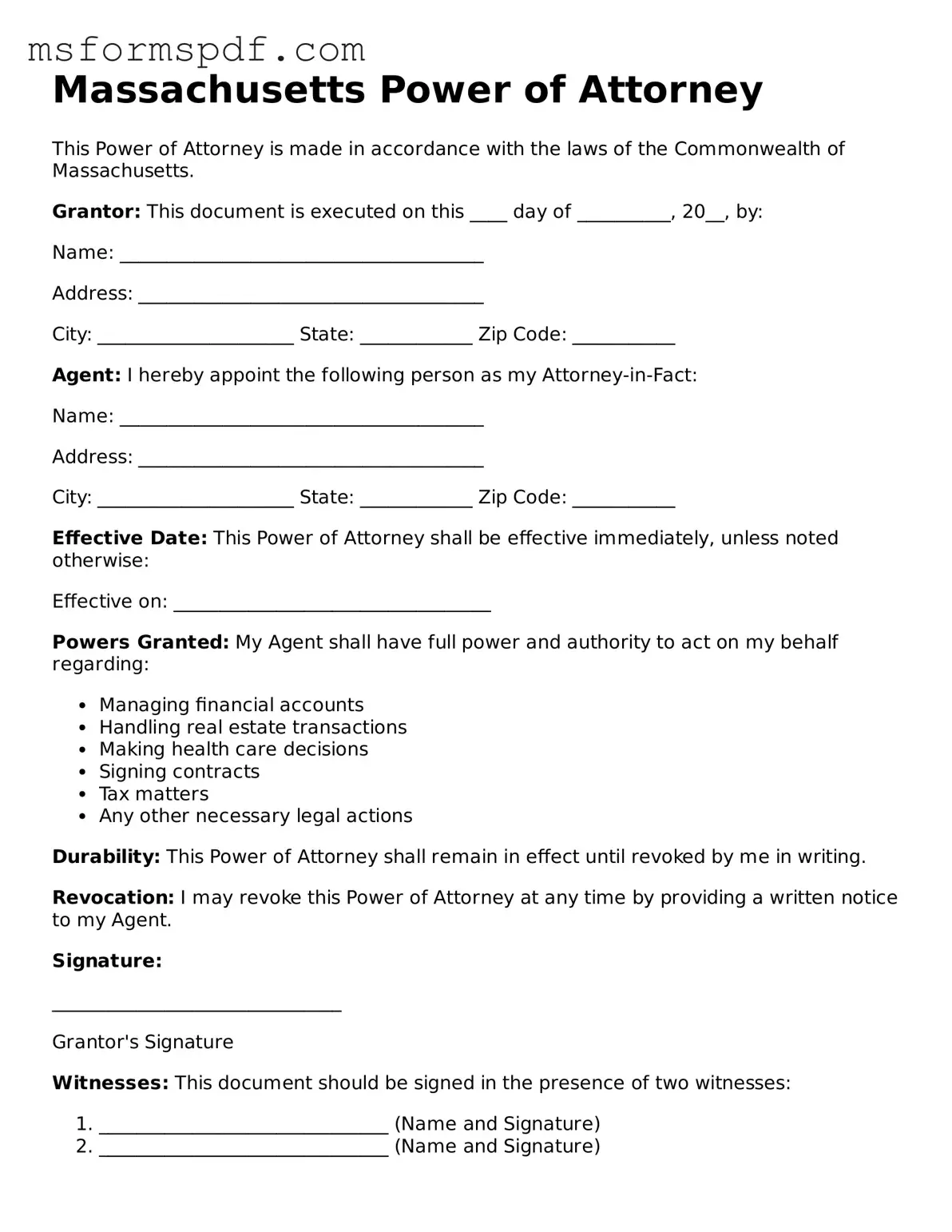Blank Massachusetts Power of Attorney Document
A Power of Attorney form in Massachusetts is a legal document that allows one person to grant another the authority to make decisions on their behalf. This form can cover a range of responsibilities, from financial matters to healthcare decisions. Understanding its importance and the process of creating one is essential for ensuring your wishes are honored when you cannot speak for yourself.
Launch Editor Now

Blank Massachusetts Power of Attorney Document
Launch Editor Now

Launch Editor Now
or
➤ Power of Attorney PDF Form
Just a moment — finish the form
Fill out Power of Attorney digitally — no scanning, no printing.